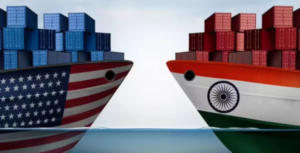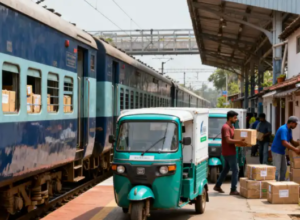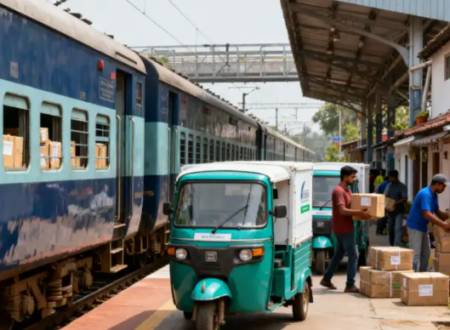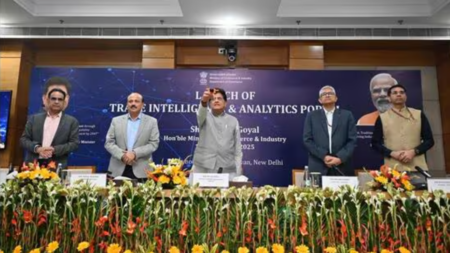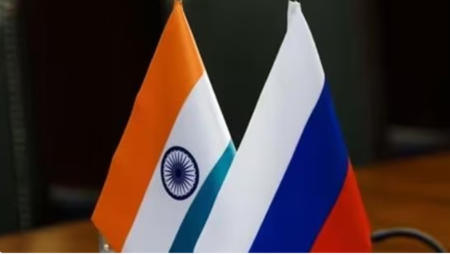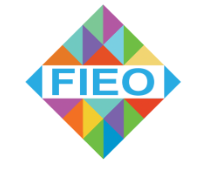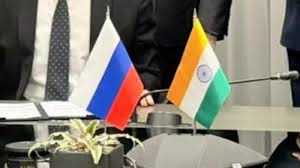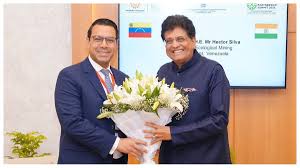Piyush Goyal meets global leaders at the CII Summit, unveils a 3-pillar strategy to boost trade, tech ties and trusted international partnerships.
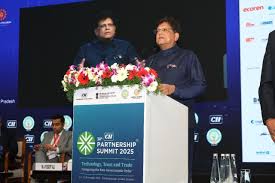
In a day packed with high-level diplomacy, India’s Commerce and Industry Minister Piyush Goyal engaged with leaders from across Africa, Europe, Latin America and Asia at the 30th CII Partnership Summit 2025 in Visakhapatnam, laying out India’s vision for a more open, technology-driven and trust-based global trading system.
Addressing a hall filled with global CEOs, ministers and policymakers, Goyal outlined three pillars that he believes will anchor the future of global partnerships:
- Freer Two-Way Investments – Lowering trade barriers to enable smoother movement of goods, services and capital.
- Technology Co-Development – Joint innovation in frontier technologies and high-impact solutions.
- Trust & Transparency – Predictable policies and clean governance to boost long-term global collaboration.
Reaffirming Prime Minister Narendra Modi’s philosophy of Vasudhaiva Kutumbakam, Goyal reminded delegates that “the world is one family” and that India seeks partnerships built on shared prosperity.
Wall-to-wall bilateral meetings
Beyond the main session, Goyal’s day was dotted with a series of bilateral engagements with ministers and international organisations. He held lunch meetings with delegations from Russia and Singapore and substantive dialogues with:
- WTO Director-General
- Economy Minister of Armenia
- Commerce & Consumer Protection Minister of Mauritius
- Industry & Commerce Minister of Angola
- Ecological Mining Development Minister of Venezuela
- Senior representatives from Saudi Arabia
- Delegation from Mozambique
Key outcomes from the bilaterals
With the WTO Director-General
Both sides reviewed the status of global trade negotiations. India pushed for:
- a permanent solution on Public Stockholding for food security,
- restoring a fully functional two-tier dispute settlement system,
- balanced agricultural reforms, including addressing developed nations’ AMS entitlements.
They agreed to stay in close consultation ahead of MC14.
Armenia: Renewing trade ties
Armenia expressed interest in growing the Gems & Jewellery sector.
India proposed a Joint Working Group and a possible high-level visit in Q1 2026.
Discussions covered:
- renewable energy
- pharmaceuticals
- feasibility of direct flights
India raised concerns on non-tariff barriers affecting pesticide exports.
Mauritius: Deepening economic links
Talks focused on expanding trade and exploring G2G procurement of key commodities, including:
- petroleum products
- rice
- milk powder
India pitched expanding services exports like IT and tourism, while Mauritius sought support to reduce its subsidy burden. India offered knowledge-sharing via Aadhaar-based digital public infrastructure.
Angola: Agriculture & diamonds
Angola sought India’s support in:
- agricultural mechanisation
- irrigation
- entrepreneurship
Both nations explored cooperation in:
- contract farming
- food processing
- joint ventures in natural diamonds
- Gems & Jewellery capacity development
Mozambique: Logistics & supply chains
The discussion centred on:
- logistics development
- resilient supply chains
- agriculture
- education and skill development
- oil & gas
Both sides showed interest in a G2G agricultural supply chain, especially for rice exports.
Venezuela: Beyond oil
Both sides agreed to diversify trade beyond oil & gas, exploring:
- critical minerals
- increased pharma exports from India
- new opportunities for Indian investors in Venezuela
A summit of global significance
The two-day CII Partnership Summit 2025, hosted in collaboration with the Government of India and the Government of Andhra Pradesh, brought together global decision-makers to shape the future of trade, technology and sustainable development.
From strategic dialogues to sector-specific opportunities, the Summit showcased India’s growing leadership in the global economic landscape, and Goyal’s engagements clearly signalled India’s readiness to lead with partnership, innovation and trust.
Source: PIB

